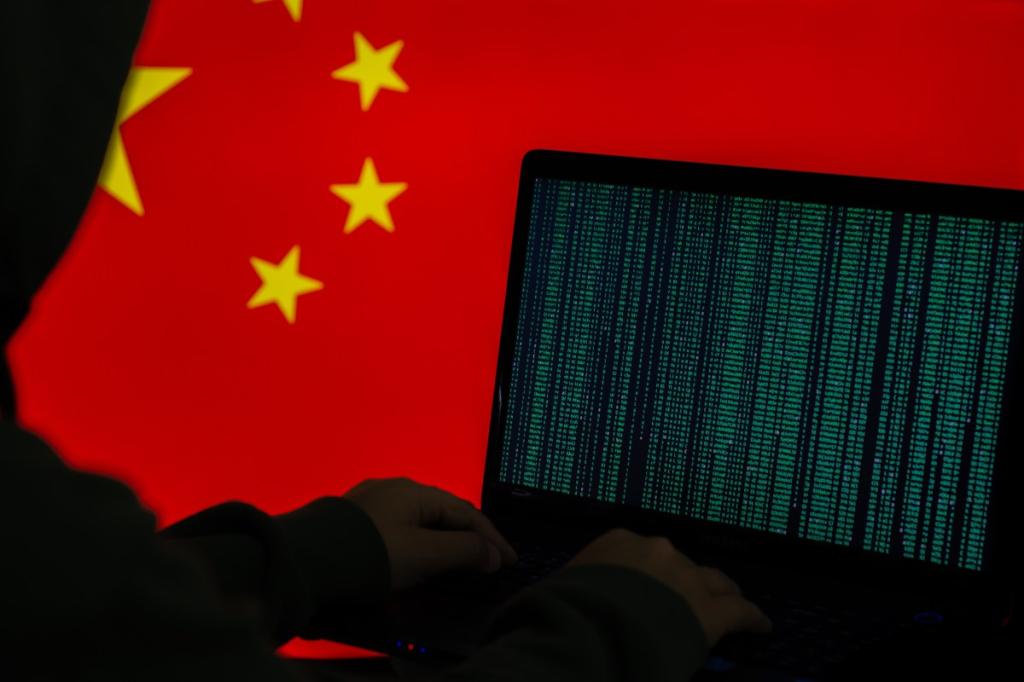Iranian Hackers Target U.S. Officials on WhatsApp Security
Discover how Iranian hackers targeted U.S. officials on WhatsApp and learn crucial cybersecurity measures to protect our democracy.

Key Points
- Iranian hackers, linked to the group APT42, targeted the WhatsApp
accounts of U.S. officials from both the Biden and Trump administrations.
- The attacks are part of a broader Iranian strategy to undermine confidence in the U.S. democratic process ahead of the 2024 presidential elections.
- Adopting robust cybersecurity practices is crucial for individuals and organizations to protect themselves against increasingly sophisticated cyber threats.
In an increasingly digital world, the intersection of technology and security remains a critical focus for governments and organizations alike. Recent reports reveal alarming attempts by Iranian hackers to penetrate the WhatsApp accounts of officials associated with both President Joe Biden and former President Donald Trump. This incident not only raises concerns about cybersecurity but also highlights the vulnerabilities of political figures amid election season. In this blog post, we will delve into the details of this situation, its implications, and what it means for the future of cybersecurity.
The Hack Explained
According to
, the parent company of
,
, and WhatsApp, a sophisticated Iranian hacker group, known as APT42, was behind these hacking attempts. Meta confirmed they had observed a “small cluster of likely social engineering activity” targeting the WhatsApp accounts of various officials. This group is believed to be connected to an intelligence division of Iran's military, which is notorious for using surveillance software to breach the security of its victims' mobile devices.
The hackers posed as technical support agents for major tech companies, including
and
, showcasing their cunning approach to lure unsuspecting targets into revealing sensitive information. Meta's security teams acted swiftly after users reported suspicious messages, and they were able to block these malicious accounts. Notably, there has been no evidence that the targeted WhatsApp accounts were compromised.

Wider Implications
This incident forms part of a broader Iranian strategy aimed at influencing political processes in the United States. The spectrum of Iranian cyber activity is targeted not just at one political party but across the board, as evidenced by recent attacks on both Democratic and Republican campaigns. U.S. intelligence agencies have suggested that these cyberattacks intend to sow confusion and undermine the public's trust in the democratic process.
The intelligence reports indicate that Iranian involvement in cyber interference seeks to demoralize voters, erode support for U.S. allies, and counter candidates perceived to exacerbate tensions with Iran. As the 2024 presidential elections approach, the implications of these activities could reverberate through political channels.
A Cautionary Approach to Cybersecurity
In light of these threats, organizations and individuals, especially those in the public sphere, must adopt a cautious approach to their digital security. Simple practices such as enabling two-factor authentication, routinely updating software, and being vigilant against phishing attempts can significantly bolster security. Additionally, it is essential to foster a culture of cybersecurity awareness within organizations to reduce the risk of successful attacks.
Encouraging Proactive Measures
Looking forward, developing comprehensive cybersecurity strategies will become increasingly vital for both political entities and the general public. Governments must continuously adapt their defenses against evolving threats and invest in robust security frameworks. By doing so, they can not only mitigate risks associated with cyberattacks but also enhance public confidence in the electoral process.
Furthermore, collaboration between tech companies and government entities must be encouraged to establish effective monitoring of suspicious activities. By sharing information and best practices, the gap in cybersecurity defenses can be reduced, creating a safer digital environment for all.
The recent hacking attempts signify a sobering reminder of the vulnerabilities that loom over digital interactions, particularly for high-profile individuals. The position of technological influence has become increasingly scrutinized, and with it comes significant responsibility. As we navigate through these complexities, keeping cybersecurity at the forefront of our strategies is essential.
In summary, the targeted efforts by Iranian hackers to infiltrate WhatsApp accounts of U.S. officials underscore the pressing necessity for vigilant cybersecurity practices. As we face the evolving landscape of cyber threats, a united and proactive approach in safeguarding digital communications becomes paramount for preserving the integrity of political processes and ensuring public trust in democracy.


